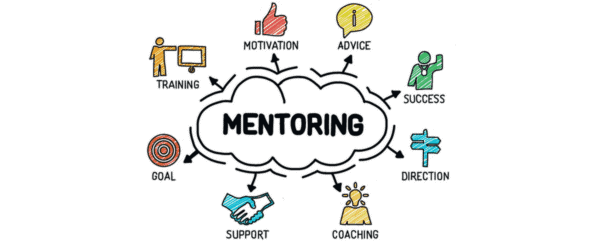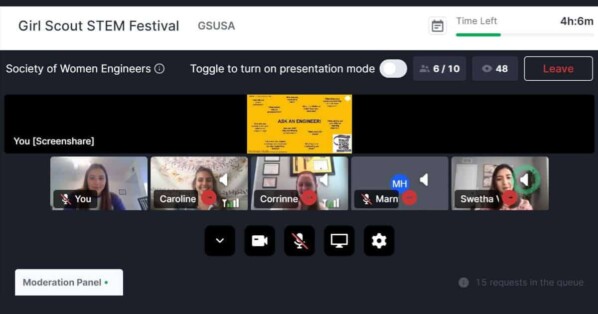
With the 2020 presidential election just around the corner, it is a perfect opportunity to have conversations with youth about the importance of voting. Something kids often overlook is that voting means a lot more than picking a president, senators, and representatives. When voting, we are also getting a say on what bills get passed over the next few years. Robin Thompson, the parent of a STEM student and paralegal at Martin LLC, suggests that:
“By reminding family and friends the importance of voting, you are reminding them the importance of their voice.”
While many believe that kids don’t have a voice because they are too young to vote, young activists are proving that there are many ways to become involved and influence the decisions of voters. CNN reports on the stories of five young activists and how they are tackling the important issue of climate change.

As youth advocates, educator Jim Kennedy suggests that it is our role to ensure that kids stay apprised of “personal, societal, and environmental” issues in addition to STEM topics like “coding, storage, cloud, and data security,” so they are later able to make informed decisions when voting on issues. Going a step further, we must incorporate civic engagement in STEM classrooms because, although the subjects continue to be taught separately, technology is increasingly part of the discussion and the solution. To find federal bills that relate to STEM and STEM education, you can visit SWE’s public policy page. Check out KQED’s suggestions on how to better incorporate civic engagement in the STEM classroom.
This month, we asked our SWE members to provide you with more actionable tips to teach youth about the importance of voting and civic engagement to STEM education and funding! Enjoy!
Katelyn Lichte – Production Engineer, Corteva Agriscience

Make it personal for them! If there are programs at their school that are federally funded or tied to a specific piece of legislation, explain to them what would happen if that piece of legislation wasn’t renewed. For example, the Building Blocks of STEM Act funds programs focused on increasing participation of underrepresented populations of STEM (this includes females!). Without the passing of this bill, funding included in the American Innovation and Competitiveness Act for bias training for teachers, implementation of more gender-inclusive computer science classes and pairing of females in kindergarten through elementary school with mentors in STEM careers would be cut.
Victoria Smerdon – Electrical Engineering Student, University of Notre Dame

My advice is to wholeheartedly embrace the pairing of STEM and the humanities and social sciences! As an electrical engineering student, I take my standard sequence of physics, mathematics, and engineering classes while also exploring very different disciplines like philosophy, literature, or economics. In order to design the next generations of products, develop our cities’ infrastructure, or research emerging medical advances, students and professionals must understand that these issues are rooted in human needs. Any effort to question our previously held beliefs or to meet with someone from a completely different background can help you to be more attuned to the needs of others. This expanded worldview can then help to be a better engineer or scientist in the future. With the upcoming election, voting, as a necessary part of our role as citizens, is a great example of ways students can engage with their community. There are many opportunities for students to read up on the issues and the diverse opinions that come. Developing the skill of thoughtful civic dialogue can empower students to advocate for themselves and others in the voting booth and in their careers to come.
Andrea Ippolito – Lecturer, Cornell University

You have to show them real examples of the connection between voting and STEM education. What programs get funded through federal, state, and local governments? Also you can show examples of role models that have testified in congress on a STEM related issue.
Yen Kha – Production Engineer, Corteva Agriscience

The first advice I would give to youth is to stay educated with an open-mind. Don’t let fear dictate what you believe in for the things you want to achieve. Ask questions to seek the truth. Create your own mental perception based on an array of sources of information, before making a conclusion. It is this very mental perception you built that should allow you to create a mental frame in the significance of how voting and democracy come into play. Because democracy keeps STEM alive – giving you the ability to articulate, innovate and propagate your ideas based on your intellectual curiosity and hard work; not by the color of your skin, religion, or political ties. One great exemplar is see how many brilliant and courageous scientists and engineers, who are all a part of STEM, such as those coming from the World Health Organization, or the United Nations – all come together to fund, collaborate, innovate and research for solutions to fight climate change, finding cures for AIDS, or research for vaccines to help fight global health pandemics. Remember, in order to create a voice, you must vote. And to vote, is to democratize and empower STEM.
Lucy Kurtz – Assistant Development Engineer, Ethicon Endo-Surgery

As much as we can do to engage in outreach and K-12 STEM programs, sometimes the biggest hurdles exist outside of interpersonal relations. Systemic change involves working both in person and behind the scenes, pushing for changes at the policy level. When we travel to Washington, D.C. for Congressional Outreach Day, we are fighting for the childcare policies that allow working mothers to be there in the first place, and for the funding we need to carry out critical STEM outreach to underserved students.
Related Content:
- Podcast: Voting Rights for SWE Collegiate Members
- Podcast: Theresa Payton on Fighting Cybercrime During Elections
- Register to Vote and Encourage Others to Register, Too!
Author
-

SWE Blog provides up-to-date information and news about the Society and how our members are making a difference every day. You’ll find stories about SWE members, engineering, technology, and other STEM-related topics.






